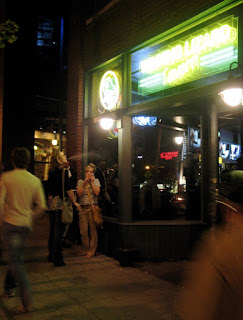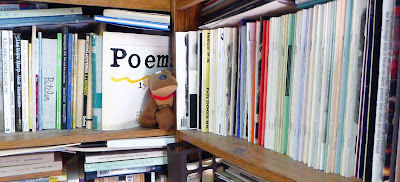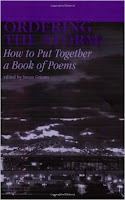In
The White Space Inside the Poem, Susan Grimm addresses the question of order: specifically, in what order should a poet arrange their poems?
Of course, she is coming back to a subject she has addressed before:
Ordering the Storm: How to put together a book of poems. And others have looked at the subject as well: the
helicopter view, the
mix-tape strategy.
You can order by theme, by date, by alternating long and short, or alternating serious and frivolous poems. You can put similar-themed poems next to each other, or you can sprinkle them out, or bookend a collection with poems on the same theme.
At a reading, I like to try to alternate the serious with the silly; the rhymed with the free. But sometimes it's good to just find a theme and develop it.
In all, it's a question of whether a book of poetry is a selection of individual gems, or a single unified thing. One thing, or many? In the mix-tape view, is this a rock opera, or a collection of singles?
Anyone else have thoughts to add?





